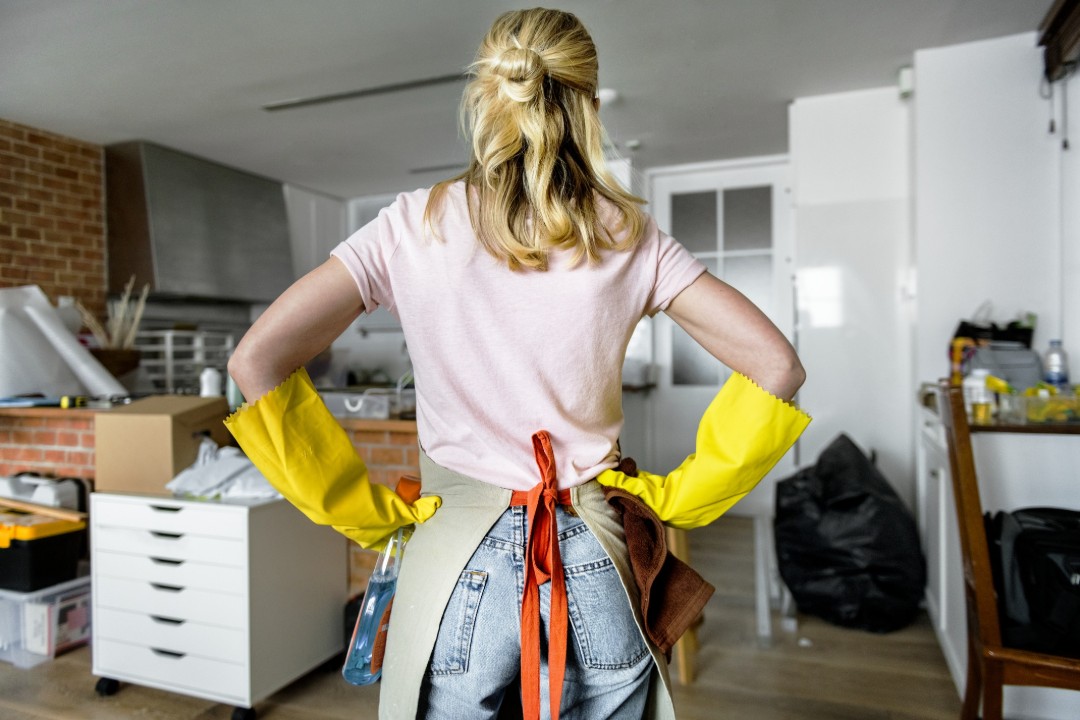- Women's overrepresentation in unpaid labor affects their health, career advancement and financial independence.
- True equality begins at home, and until domestic work is equally shared, the promise of gender equality remains incomplete.
When counting unequal spaces, one has to think of our very own homes. Women from different countries continue to shoulder the majority of domestic labor even in households where both husband and wife are working full-time.
This reveals the enduring grip of patriarchal norms in our societies and country at large.
What do you mean we're both tired from work, and I still have to go to the kitchen and prepare something for you? What do you mean you are tired and so won't tuck the kids to bed, so I should do it?
What do you mean I should check if the kids have done their homework or require anything, and you are just tired from work? Because I'm not tired?
'Domestic labor' encompasses a wide range of tasks, including cooking, cleaning, laundry, grocery shopping, childcare, elder care, emotional management, and so on.
Read More
The term "second shift" was coined by Sociologist Arlie Hochschild, famously, to describe how women, after completing a full day of paid work, return home to unpaid responsibilities.
The International Labour Organisation reported that unpaid care work prevents 708 million women from participating in the labour market.
In Kenya, where urbanisation and dual-income households are rising, women spend significantly more time on housework and caregiving than men do.
And when men contribute, their tasks are often less frequent and less time-sensitive, like fixing appliances, while women handle daily routines like cooking dinner, managing children's schedules and many more.
Some may say you can get a house help, but the mental care of a household cannot be fixed just like that; this includes remembering birthdays, scheduling doctors' appointments, organising school activities, and anticipating family needs.
The roots of this inequality lie in deeply ingrained gender norms. In most societies and villages, girls are often groomed to be caretakers, while boys are encouraged to pursue independence and leadership from childhood.
These roles mostly carry over into adulthood, where women are expected to naturally manage the home as much as they manage their careers.
Often on social media, you'll find single mothers being bashed and single fathers being clapped for, for the hard work, and it is most often the bare minimum.
Women's overrepresentation in unpaid labor affects their health, career advancement and financial independence.
It contributes to the gender pay gap, as time spent on domestic tasks reduces the hours available for paid work and professional development. It also affects relationships, leading to resentment and burnout.
We all must know that change must happen to address this imbalance on multiple levels, including the home. Couples need to have honest conversations about responsibilities and expectations.
Also, men must be willing to take on equal shares of domestic labor not just by helping occasionally.
Education systems should teach children about shared responsibilities and respect for all forms of labor noting that domestic labor should be seen not as women's work but as human work.
It is time to rip to pieces the myth that women are naturally better at caregiving and homemaking. True equality begins at home, and until domestic work is equally shared, the promise of gender equality remains incomplete.
Stay connected with us on WhatsApp and X for instant updates and breaking news as it happens.










